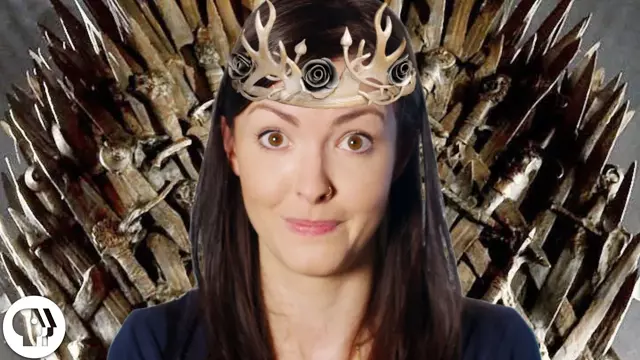2016-04-21
[public] 76.8K views, 2.86K likes, 81.0 dislikes audio only
4KGame of Thrones Psychology book on Amazon: http://amzn.to/1VHbGpC
SUBSCRIBE to BrainCraft! http://ow.ly/rt5IE
Keep in touch, won't you?
Snapchat: nessyhill
Twitter https://twitter.com/nessyhill
Instagram https://instagram.com/nessyhill
Tumblr http://braincraft.tumblr.com
Facebook https://www.facebook.com/Braincraft
BrainCraft is created, written and hosted by Vanessa Hill (@nessyhill) and brought to you by PBS Digital Studios. Talking psychology, neuroscience & why we act the way we do.
Sound design: Joel Werner http://joelwerner.com
Written by Rachelle Oldmixon
Produced and edited by Vanessa Hill
And thank you to Travis Langley, Blanca Oliviery and Mark Rootenberg for their help.
More Reading:
Mooney, S. J., Peragine, D. E., Hathaway, G. A., & Holmes, M. M. (2014). A game of thrones: Neural plasticity in mammalian social hierarchies. Social neuroscience, 9(2), 108-117. http://socialneuro.psych.utoronto.ca/Publication%20Georgia.pdf
https://www.apa.org/helpcenter/willpower-gratification.pdf
Mischel, W., Shoda, Y., & Rodriguez, M. I. (1989). Delay of gratification in children. Science, 244(4907), 933-938. http://www.ncbi.nlm.nih.gov/pubmed/2658056
Mischel, W., Shoda, Y., & Peake, P. K. (1988). The nature of adolescent competencies predicted by preschool delay of gratification. Journal of personality and social psychology, 54(4), 687.
Beveridge, A., & Shan, J. (2016). Network of Thrones. Math Horizons, 23(4), 18-22. http://www.maa.org/sites/default/files/pdf/Mathhorizons/NetworkofThrones%20%281%29.pdf
/youtube/video/UayWymFGIqI?t=33.488998
/youtube/video/UayWymFGIqI?t=76.029999
/youtube/video/UayWymFGIqI?t=115.99

